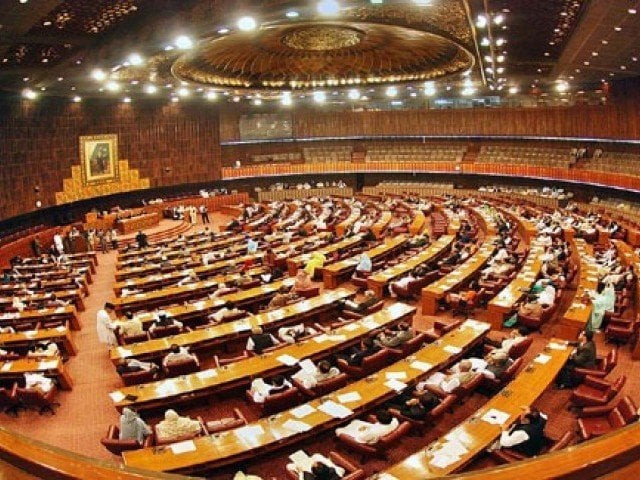Govt urged to devise long-term policies
Think tank notes policy-making done on reactionary approach for short-term solutions

In order to meet the formidable challenges with regard to politics, economy and security of Pakistan, the government must come up with comprehensive and strong policies for the country’s long term gain.
This was the summary of an annual report compiled and released by the Islamabad Policy Institute (IPI) on Friday which stressed upon the government to formulate policies and make strong decisions for the future stability and prosperity of the nation.
The think tank in its annual report ‘Pakistan Outlook 2021 – Politics, Economy and Security’, which provides an in-depth analysis and forecast of the political, foreign policy, security, and economic trends in the country, also took an exclusive look at energy security.
It noted that policy-making in the country had for long been administered by a reactionary approach that panders to short-term solutions. Such an approach, it cautioned, subdues symptoms while leaving the root causes untouched.
Without an effective policy-making and implementation framework in place, IPI Executive Director Professor Sajjad Bokhari said it would be difficult for the country to unshackle itself from the chains of frequent boom-bust economic cycles and problems like food inflation and that circular debt would continue to hinder sustainable growth.
Policy analyst and member of IPI Advisory Board Raza Rumi emphasised on the need for a consensus among political elites on reforming public owned enterprises, restoring parliamentary oversight over the executive, legal and judicial reform, strengthening federalism, and transferring powers and resources to local governments.
During 2021, he believed the challenges to governance would intensify unless a political settlement is reached among the opposition, the government and the establishment.
Read More: Opposition grills govt over Covid funds
Former Defence Secretary Lt Gen (retd) Asif Yasin Malik, while deliberating on the emerging security environment in the current year, also stressed on improved governance and restoring the public’s confidence in the government’s ability to deliver.
“Serious measures have to be taken to improve the governance standards in the country so as to bring socioeconomic justice to the doorstep of every Pakistani. This is imperative for national security,” he maintained.
Malik underscored that the biggest hazard to national security on the internal front is the loss of trust by the populace in the ability of state to safeguard their interests against foreign and domestic threats, and provide a balanced social structure for one and all.
This may be significantly the year of “make or break”, he said.
Former Foreign Secretary Salman Bashir, while evaluating the foreign policy challenges, observed that in an unsettled global and regional environment, the outlook for Pakistan in 2021 would remain precarious.
On the issue of engaging the new Biden administration in the United States, Bashir was of the opinion that ties with the US are longstanding and new areas of common interests will have to be identified.
The former foreign secretary suggested that we will have to spell out our own geo-economic perspective to the Biden administration and seek avenues for private sector cooperation in all sectors.
Academician Dr Adnan Arshad in his take on the Covid-19 situation said that while the pandemic was ill-fated, its occurrence provided an opportunity to set up a different kind of world where healthcare could be delivered to all in a cost-effective manner.



















COMMENTS
Comments are moderated and generally will be posted if they are on-topic and not abusive.
For more information, please see our Comments FAQ